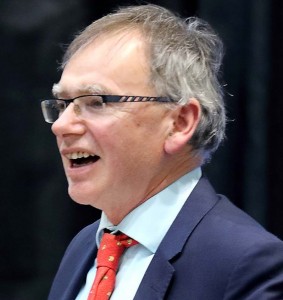Waterford Institute of Technology (WIT) has formally approved its Strategic Plan for the 2018-2021 period, in which its ambition to become one of the world’s top 100 new universities is underlined.
The plan, which The Munster Express first reported on in our February 13th edition, represents “a declaration of intent” according to WIT Chairman Jim Moore, “and is ambitious and confident”.
In the report’s foreword, WIT President Willie Donnelly states that the document was devised “in the knowledge that we will deliver a University for the South East during the period of the Strategy. The University name is not our objective but rather the delivery of a university recognised globally for excellence and quality.”
The new University, the Strategy declares, which will be “created with our partner, Institute of Technology, Carlow, will have the quality, scale, breadth of programme and disciplinary provision and depth of research to rival existing ‘young’ universities in Ireland and elsewhere”. The delivery of Technological University (TU) status is identified in the Strategy as “enabling it to achieve its ultimate goal”.

The document also articulates what WIT believe a TU’s key characteristics, emphasising the development of “regional and national human capital” in addition to a “greatly enhanced research agenda leading to significantly greater research impact”. A TU will also be “active in the creation of positive developmental partnerships with regional, national and international agents” and will expand both educational access and graduate education. The Strategy states that expanded graduate education and enhanced research levels will be realised through “increasing the numbers of research active faculty, through extending the capacity for advanced degree supervision by expanding the doctorate-qualified staff numbers, and that supports enhanced teaching and learning through training and development of teaching skills”. The document also states the need for the new TU to create “a position within the higher education system nationally which is differentiated from existing provision”.
No less than 51 actions which WIT commits to deliver upon over the next three years are outlined in the Strategy, with the 51st and final point proving particularly eye-catching: to “break even in any one year by 2021.”
Among the other actions, printed here in accordance to their itemised order in the Strategy are as follows:
* Action 3: “Increase training budget by 25% in further training in Teaching, Learning and Assessment by faculty and staff and align at least 35% of the overall budget in support of training in online, digital and technology-enhanced teaching and learning.”
* Action 9: “Create a Centre for Teaching and Learning Research and consolidate all research activity in teaching and learning into that Centre.”
* Action 20: “Create and implement a new designation, Research Institute.”
* Action 27: “Extend our public presence across the region and our outreach activity in regional counties and centres of population, facilitating in at least three instances in each county activities of regional or sectoral interest.”
* Action 34: “Contribute to and lead on regional policy initiatives relating to economic, social and cultural development of the South East by publishing policy ‘green’ papers (at least two per year).
* Action 36: “Recruit formally (on an associate or other basis) external industry experts in support of programme development and delivery.”
* Action 40: “Increase the diversity of the student population by increasing the number of incoming EU and non-EU students as part of an international student recruitment strategy consistent with national targets.”
* Action 42: “Increase EU funding through competitive research-funding applications by 20%.”
On the ever-present topic of funding, the Strategy states: “This under-funding has manifested itself at (WIT), in the first instance, in a lack of significant capital investment. Post-economic recovery pay increases have also had the effect of further limiting available funding to institutions including (WIT)…
“The Institute’s reliance on Exchequer funding means that (WIT) is adversely impacted when State funding is unavailable or decreases, as has taken place over recent decades. Notwithstanding, the Institute has within its span of control some types of activity that will impact positively on its financial position…these involve significantly greater recruitment of part-time students, increased retention of existing students, an increase in international recruitment, and beginning to create the infrastructure needed to source additional private funding.”


